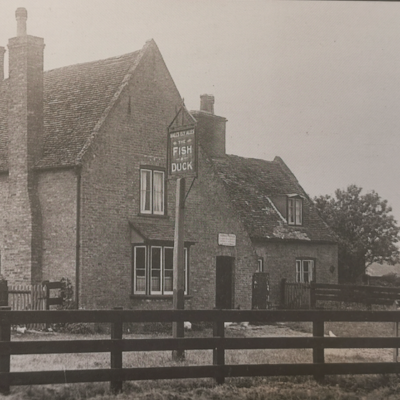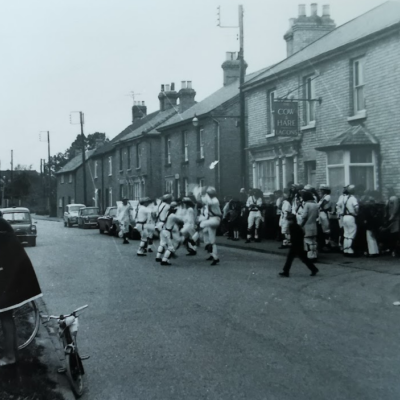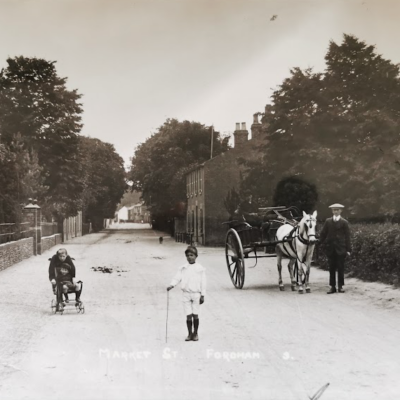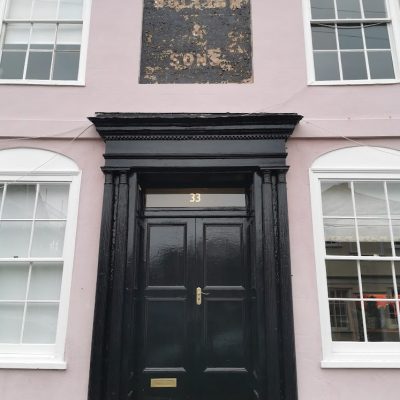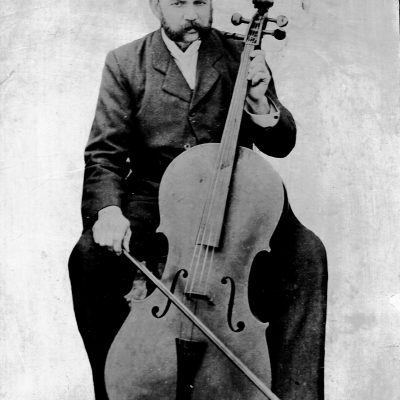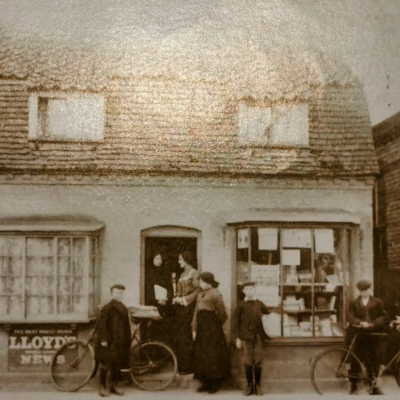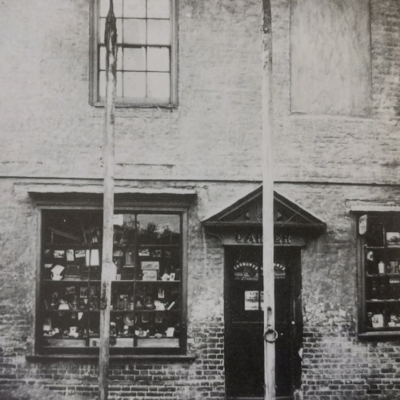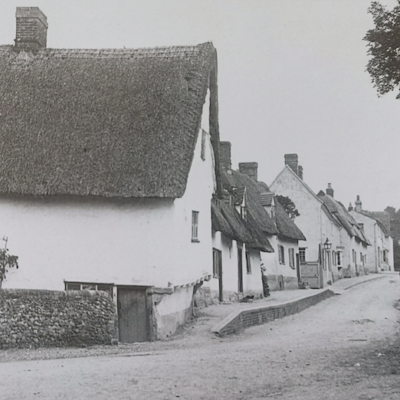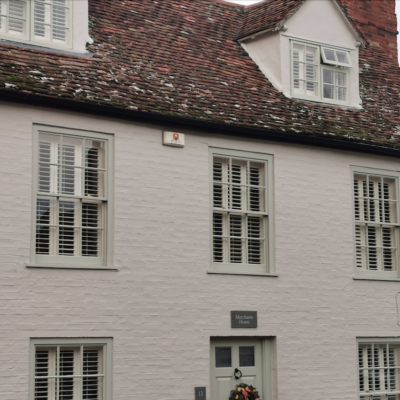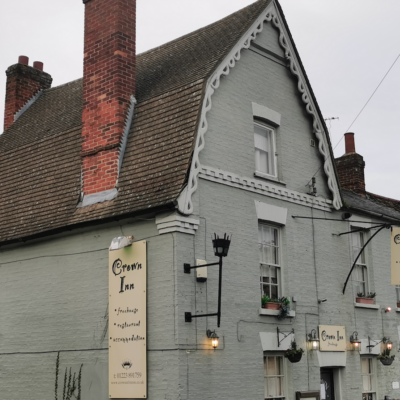Search by topic
- archaeology
- Building of Local Interest
- charity
- church
- crime
- dressmaker
- fire
- Great Eastern Railway
- Listed building
- Mapping Relief
- medieval
- oral history
- poverty
- Public House
- Rattee & Kett
- Religious House
- Roman
- scholar
- school
- Then and Now
- tudor
- women
- work
- world war one
- world war two
Search by text
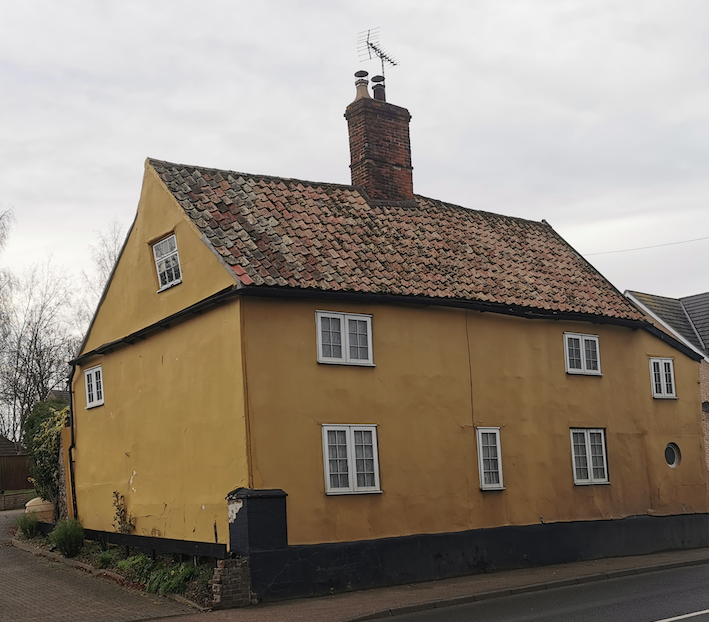 3 Cambridge Road, Linton. Old Green Hill public house.
3 Cambridge Road, Linton. Old Green Hill public house.Green Hill, (5) High Street, Linton
History of Linton 1910 fire
1881 High Street No.5 Linton
John Pluck, 66, licensed victualler, b Essex
Aliuce, 54, b Linton
William, 14, b Linton
1891
Henry G A Edlin, 30, innkeeper, b Cambridge
Louisa, 26, b Linton
Bertram, 7, b Linton
For a history of the Edlin family see:
1901 Green Hill
Charles Overall, 46, pub & innkeeper, b Castle Camps
Mary A, 42, b Linton
Harriet, 20, b Yorks
Mary A, 13, b Yorks
Miriam, 8, b Yorks
Charles J, 6, b Linton
Gladys, 4, b Linton
James H, 2, b Linton
Unnumbered:
Charles Marsh, 58, gardener, b Hadstock
Mary, daughter, 27, b Linton
Cambridge Independent Press 19.8.1910
SERIOUS VILLAGE FIRES.
Two Cottages Burnt Down at Linton.
BOY SCOUTS 10 THE RESCUE.
Linton has been the scene of two fires this week, one occurring Monday, and a second on Tuesday. Monday’s outbreak was the more serious, the two cottages next to the Green Man being burned down. Everyone in the neighbourhood, men, women and children, turned out and worked with a hearty goodwill in attempting to check the flames, and succeeded in preventing damage being done to surrounding property. Amongst the helpers was a clergyman, believed have been Mr. Bravitt, who married a Balsham lady, and is in a Norfolk parish. A patrol of about ten Boy Scouts from Cambridge also rendered valuable assistance. The second fire, which broke out the at same hour on Tuesday, occurred on Mr. S. A. Taylor’s farm, by the Catley-road. doing damage of about £100.
Cottages on Fire.
The outbreak Monday was discovered by Mr. J. Gimson, who was driving by in a cart, when he saw volumes of blue smoke coming from the chimney on Charles Marsh’s cottage. Mr. Gimson called out to his man, “Marsh’s cottage is on fire; get the engine out,” and jumped off the cart and ran to the cottage. The cottage adjoins another, which is occupied by Dennis Morley. Originally the cottages, the property of Mr. H. Prior, were one house, and formed a picturesque block at the top of the hill.
The engine was brought smartly from its home under the rooms of the Constitutional Club, and was hastily prepared for fighting the flames. News of the outbreak flew from house house, by a kind of wireless telegraphy, and excited crowd of villagers—farm hands, shopkeepers, and Jacks-of-all-trades—quickly collected in the street. For a time the chief need was for buckets, and they came from all manner of places. The host of helpers lined up from the well to the engine and passed the filled buckets from hand hand, and thus kept the ever-thirsty engine supplied. This was excellent. Unfortunately something akin to the too-many-cooks position arose. The line did not always keep up its regular flow water, and instead, individuals, over zealous, took their buckets straight the cottages and tackled the flames themselves. Thus the engine was allowed get dry, and a hole being made in the wall, a fatal draught was created.
By this time Supt. Stapleton had arrived, and was helping to organise the work, and a clergyman. who had arrived by the two train, joined forces with the volunteers, and did admirable work. Along the Cambridge-road was a patrol of about 10 Boy Scouts, who had been camping in the district for several days. By some means the alarm reached them, and the Scoutmaster immediately brought his men to the scene of the outbreak, where they gave splendid assistance.
On both sides of the blazing cottages were other buildings, which were in grave danger, for the flames were being steadily fanned into an enormous volume by a strong wind. On the opposite side of the road stands a thatched harm but this escaped, although sparks were flying in all directions. By the co-operation of the workers the Green Hill public house and the other buildings near the cottages were saved from sharing in the destruction. Mr and Mrs T. Suckling and hand of helpers worked hard to save the furniture from the two houses, and a quantity from Morley’s house was taken into the yard, but Marsh’s was practically all burned. Mr Prior’s men, Mr Gimson’s men and Messrs Cowling and Burling were among those who rendered the most prominent assistance.
At about 4.30 in the afternoon the flames were well under hand, and the workers could safely slacken their efforts. Exactly how much damage was done it is not possible to say yet, but it will probablv amount to something between £130 and £200. What caused the fire is a mystery, although many theories as to its origin were readily forthcoming. By some the outbreak is attributed to a boiler that was being used, and others tax a passing traction engine with firing the thatched roof by sparks. Others again fall back upon the beam-in-the-chimney story, but the cause is not definitely known by anyone.
Stack Destroyed.
On Tuesday, at about the same hour, 1.30p.m., fire broke out in a stack of hay and clover, belonging Mr S. A. Taylor, in a field on the Catley-road. Mr Taylor’s men assembled at once and did all they could to prevent the flames from lighting two other stacks standing close by. In this they were assisted by the wind which was blowing in the opposite direction. The stack that was destroyed was probably worth £100, and is covered by insurance.
Contribute
Do you have any information about the people or places in this article? If so, then please let us know using the Contact page or by emailing capturingcambridge@
License
This work is licensed under CC BY-NC-SA 4.0





